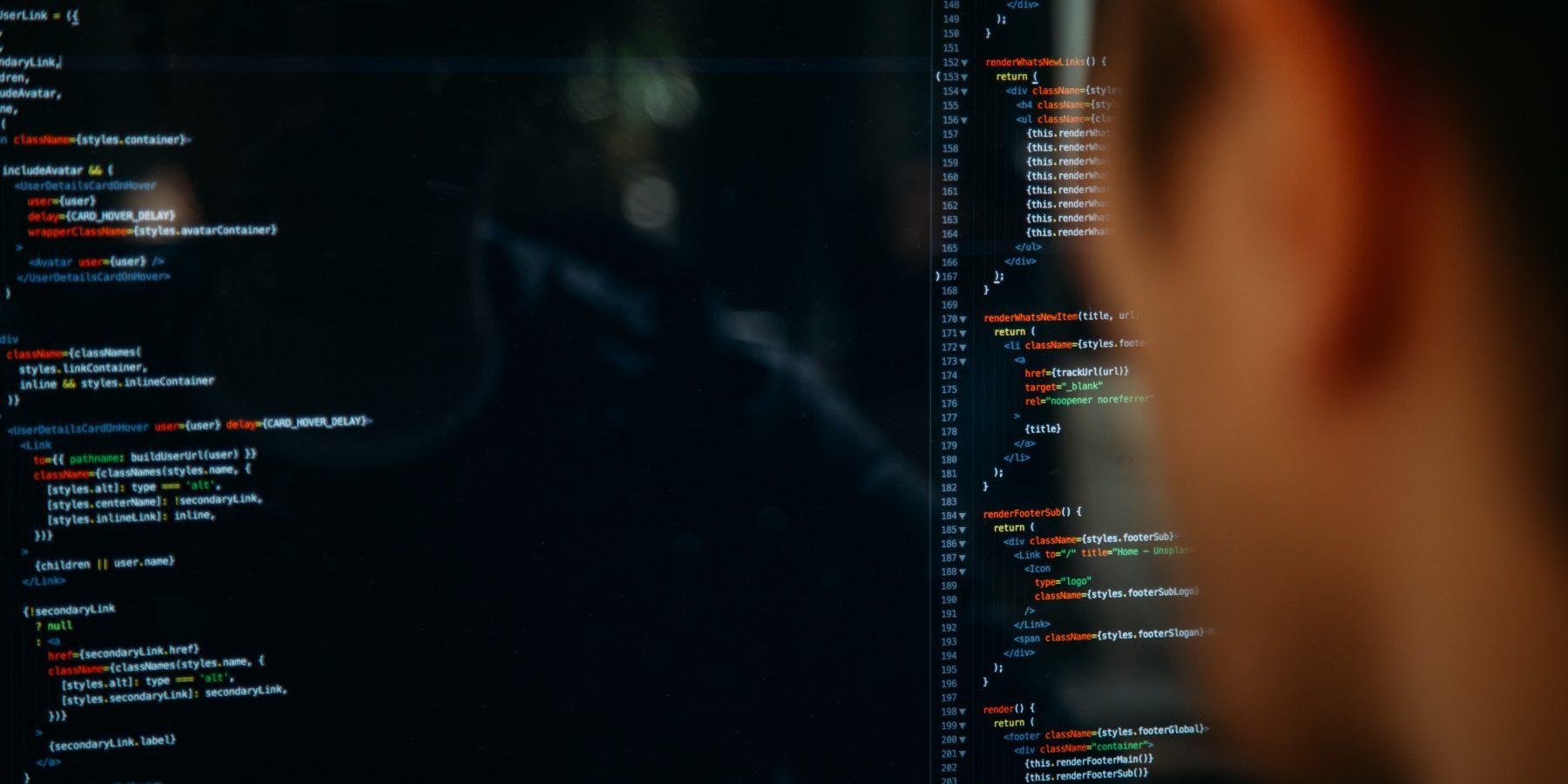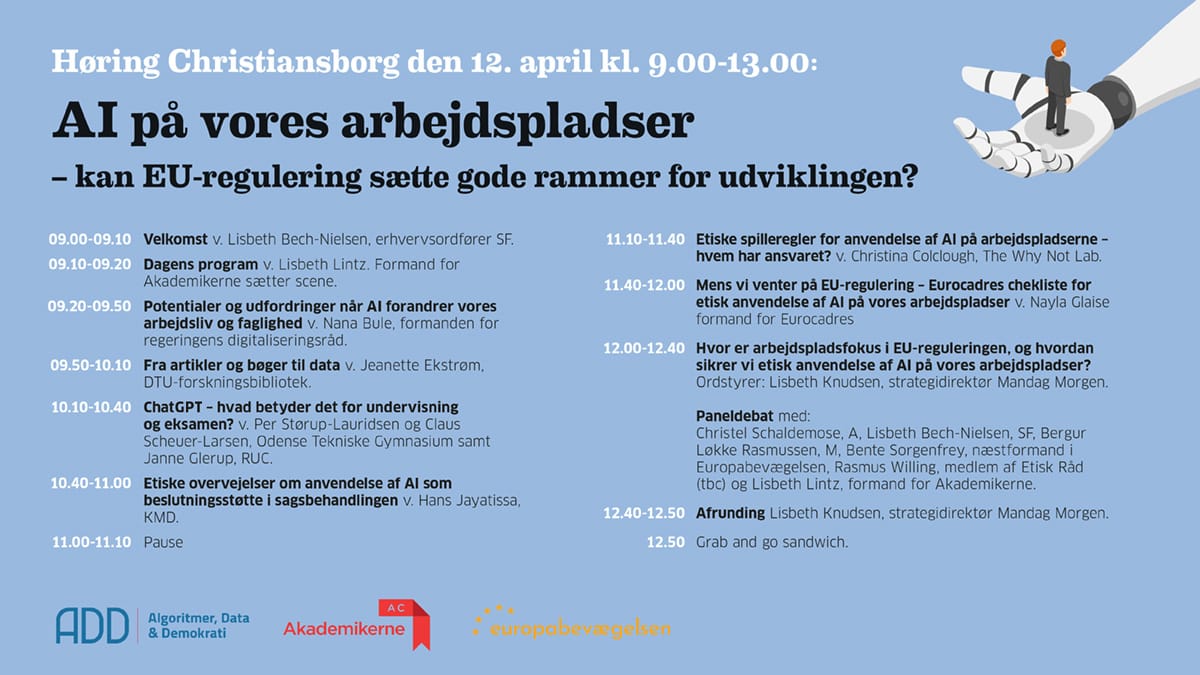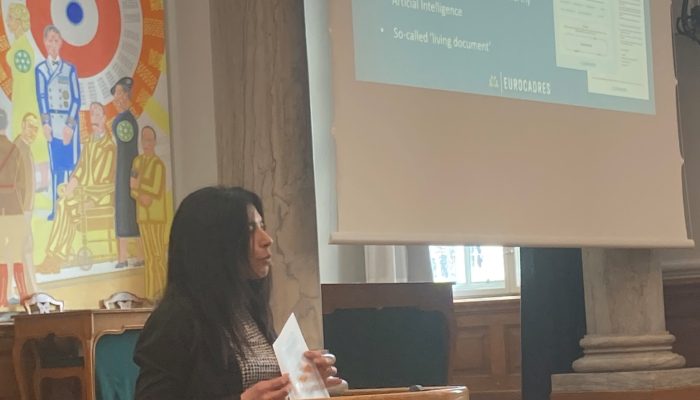
AI in focus for Danish legislators
Call for safeguards detailed in Copenhagen.

Christiansborg, home of Denmark’s national parliament, was the venue for last week’s hearing on Artificial Intelligence (AI), with Eurocadres calling for ethical and transparent safeguards in workplaces. The hearing, AI's importance for our work and professionalism, took place on April 12th, with over 180 in attendance throughout the day. Organised by AC Denmark (Akademikerne), the Danish European Movement (Europabevægelsen) and ADD (Algoritmer, Data og Demokrati), over the course of the day the focus was on questions such as: ‘How does AI change our working life and professionalism?’, ‘Should we set limits to the implementation of AI?’, and ‘Can new EU AI rules help us to regulate and set a framework for the ethical use of AI in our workplaces, or do we have to take the responsibility and start the work ourselves?’.
Presented by President Nayla Glaise, Eurocadres’ contribution focused on how workers themselves can look to guarantee the development of ethical AI only, with a presentation entitled: While we wait for EU regulation - Eurocadres checklist for the ethical use of AI in our workplaces. While outlining the key principles to deliver AI that respects the human-centric approach, our input sought to highlight the work done I developing our ethical AI checklist, while emphasising that our work to improve advice given to workers continues.
 Much of the focus centred on Europe’s AI Act, while emerging technologies such as ChatGPT were referenced as examples of newly-developed systems with the potential to negatively impact workers and their working environments. While an array of opinions exist as to how we can ensure future-proof European rules for systems which develop at such speed, there was common agreement on the need for legislators to act, with unintended consequences of poorly developed systems (or intended consequences in systems developed by those looking to expose legislative gaps) seen throughout the single market. Discussions with rapporteur of the European AI Act MEP Christel Schaldemose (S&D), Lisbeth Bech-Nielsen (Danish MP, Greens), and former Prime Minster Bergur Løkke Rasmussen (RE), emphasised the cross-party agreement on the need for action.
Much of the focus centred on Europe’s AI Act, while emerging technologies such as ChatGPT were referenced as examples of newly-developed systems with the potential to negatively impact workers and their working environments. While an array of opinions exist as to how we can ensure future-proof European rules for systems which develop at such speed, there was common agreement on the need for legislators to act, with unintended consequences of poorly developed systems (or intended consequences in systems developed by those looking to expose legislative gaps) seen throughout the single market. Discussions with rapporteur of the European AI Act MEP Christel Schaldemose (S&D), Lisbeth Bech-Nielsen (Danish MP, Greens), and former Prime Minster Bergur Løkke Rasmussen (RE), emphasised the cross-party agreement on the need for action.
Trade unions have consistently called for proportional regulation of systems, with a need to ensure workers are not exposed to risks such as surveillance and monitoring, performance analysis, bias and other potential malpractices commonplace with AI systems. While we await the outcome of the latest European initiative to regulate these systems, we will continue to work with legislators at a national and EU-level, workers and experts to deliver a text that improves the situation for all workers in Europe.
